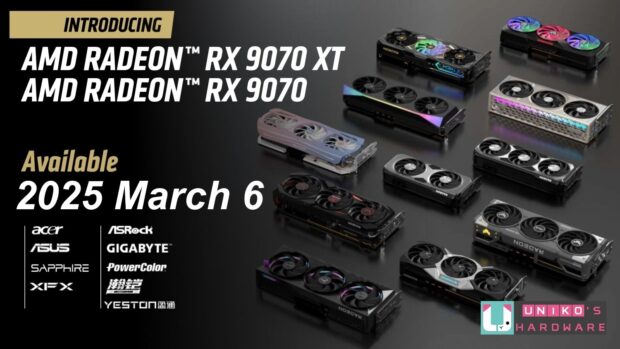
The investment landscapes of cryptocurrencies and stock markets have witnessed significant upheavals, particularly highlighted by entities like Dogecoin (DOGE) and GameStop (GME). This article aims to dissect the nuances between these two unconventional investment avenues, providing a detailed analysis backed by expert insights, trends, and real-time market behavior. Both Dogecoin and GameStop have been at the center of major speculative movements and are emblematic of the modern participatory approach to investing.
What is Dogecoin? Unveiling the Crypto Phenomenon
Dogecoin started as a lighthearted alternative to traditional cryptocurrencies, embodying a fun image while harnessing robust blockchain technology. It’s a decentralized, peer-to-peer digital currency that allows users to easily send money online, often associated with its Shiba Inu dog meme. Unlike Bitcoin, which is aimed at revolutionizing financial systems, Dogecoin has placed itself as a community-driven project, not shying away from its meme-centric ethos which has significantly helped in its viral spread.
The Rise to Prominence
Dogecoin’s ascent is a tale of community influence and market sentiment, driven by high-profile endorsements and social media. A legion of supporters, including Elon Musk, have periodically fueled its popularity. This cryptocurrency has not only provided lucrative returns at times but also highlighted the impact of narrative in driving financial markets.
Technical Aspects and Market Adoption
Despite its origin as a joke, Dogecoin possesses the fundamental aspects of a robust cryptocurrency like its Scrypt technology and an unlimited supply, which make it distinct from Bitcoin’s capped supply model. Its adoption for tipping and small transactions online underscores its utility in micro-transactions, a niche that differentiates it in the crowded cryptocurrency market.
What is GameStop? The Epicenter of a Retail Trading Revolution
GameStop, a brick-and-mortar video game retailer, found itself at the heart of a financial narrative that epitomizes the power of retail investors. GME’s stock became the focal point of a David vs. Goliath story, battling against large institutional investors in a saga involving short squeezes that caught global attention.
The Short Squeeze Phenomenon
The GameStop saga began with the recognition of disproportionate short interest in its stock, leading to a coordinated effort by individual investors congregating on platforms like Reddit’s r/WallStreetBets. This phenomenon not only skyrocketed GME’s stock price but also emphasized the shifting dynamics of stock trading with retail investors beginning to flex significant influence.
Fundamentals vs. Speculation
While the surge in GME’s stock was propelled by speculative trading, it raised questions about the fundamentals of the company. GameStop has been in a tough spot with declining sales and profitability challenges. The disparity between its market valuation during the squeeze and its financial health was stark, spotlighting the potential perils of hype-driven investments.
Comparative Analysis: Dogecoin and GameStop
Comparing Dogecoin and GameStop reveals layers of complexity beyond typical investment analysis. Both represent a new wave of investment philosophy that is heavily influenced by social media, public perception, and grassroots movements.
Market Dynamics and Investor Behavior
Both Dogecoin and GameStop showcase how modern markets can be swayed by narrative and community action rather than traditional financial metrics. While Dogecoin rides the wave of cryptocurrency enthusiasm and meme culture, GameStop’s story is tied to a retaliatory push against institutional hegemony.

Risks and Rewards
Investing in either comes with its set of risks. Dogecoin, while having a supportive community, faces volatility and the whims of influencer endorsements. GameStop, on the other hand, battles with fundamental business challenges, making its stock potentially unstable post-hype.
Future Prospects
The future trajectory of both Dogecoin and GameStop will largely depend on their ability to maintain investor interest and adapt to evolving market conditions. For Dogecoin, broader crypto market trends and its adoption for real-world transactions will be key. For GameStop, restructuring into a more digital-focused enterprise while leveraging its brand could determine its longevity.
FAQs About Dogecoin and GameStop
- What drove Dogecoin’s initial popularity?
- How did social media impact GameStop’s stock price?
- What are the key differences in investment strategy for Dogecoin and GameStop?
- Can Dogecoin be considered a safe investment?
- What are the potential long-term benefits of investing in GameStop?
- How do market trends affect speculative investments like Dogecoin and GameStop?
Conclusion
Dogecoin and GameStop symbolize a new era in investing where community and narrative play pivotal roles. Each carries its unique set of risks and rewards, tailored to very different types of investors. Understanding these dynamics is crucial for anyone looking to engage with modern speculative markets. Whether as a cautionary tale or a blueprint for future financial activism, the stories of Dogecoin and GameStop will likely continue to fascinate and instruct.
Suggested Inbound and Outbound Links
- Link to an article on “The Impact of Social Media on Stock Prices”
- Link to detailed analyses of cryptocurrency market trends
- Outbound link to a financial education platform discussing investment strategies
By analyzing Dogecoin and GameStop, investors can gain insights into the role of community-driven movements in shaping market landscapes, offering a unique perspective on risk management and investment decisions.




















Be the first to leave a comment